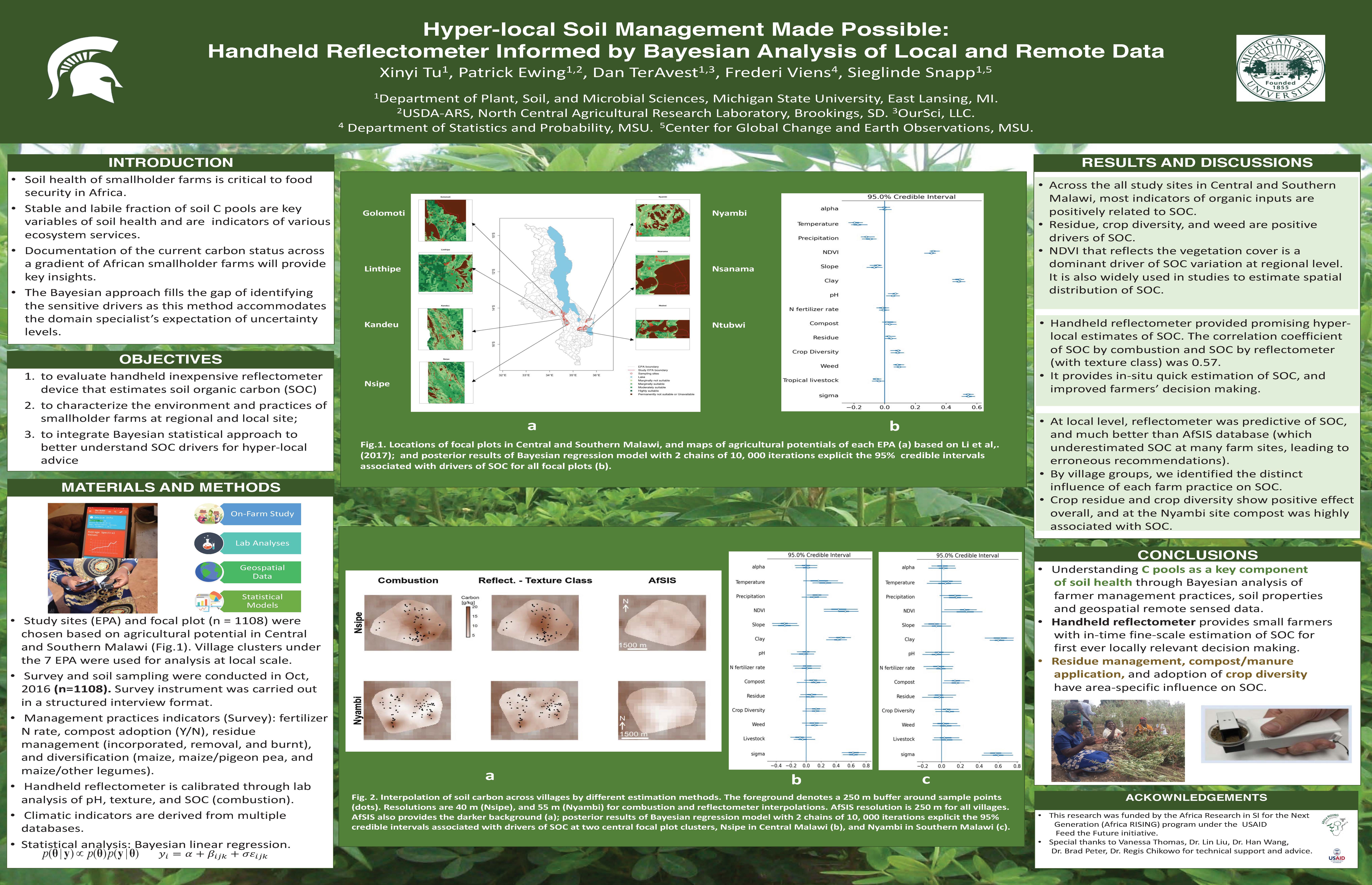Presenter: Xinyi Tu
Affiliation(s):
-
Department of Plant, Soil, and Microbial Sciences, Michigan State University, East Lansing, Michigan, USA
-
USDA-ARS, North Central Agricultural Research Laboratory, Brookings, South Dakota, USA
-
OurSci, LLC.
-
Center for Global Change and Earth Observations, Michigan State University, East Lansing, Michigan, USA
Poster Title: Hyper-local Soil Management Made Possible: Handheld Reflectometer Informed by Bayesian Analysis of Local and Remote Data
Authors: Xinyi Tu, Patrick Ewing, Dan TerAvest, Sieglinde Snapp
Abstract:
Soil degradation is a critical problem for African countries where people depend heavily on agricultural production and often have limited resources. Smallholder farmers’ managed lands in Sub-Saharan Africa provide >70% of food production. However, soil degradation with limited access to organic resources poses challenges for food security. For cultivated fields, climate factors are insufficient for understanding the soil organic carbon (SOC) variation which is also influenced by anthropogenic management. In addition, limitation of farmers’ access to in-time and fine-scale assessment of SOC leads to lack of understanding of soil health status. Near-infrared reflectance has seen rapid advances with advances in machine learning, and routinely provides accurate soil carbon estimates to inform management: Field-portable devices can exceed 90% accuracy in certain settings. We have achieved 60% carried out on-farm by Malawi extension in the first real world test that we know of to inform local management.
The low-cost, robust, field-portable reflectometer device provided immediate and in-situ estimates of soil carbon. Further, to provide field tested recommendations, we evaluated drivers of stable and labile carbon pools, through Bayesian statistical models of survey data to quantify climate-induced and management-induced variables. The Bayesian approach fills the gap of identifying sensitive drivers as it accommodates the domain specialist’s expectation of uncertainty levels, where we build on our use of Bayesian models to interpret maize yield predictors. We found that the reflectometer can improve local SOC assessment compared to current AfSIS database, and organic resources are critical for ameliorating soil health.

Click to view full PDF: